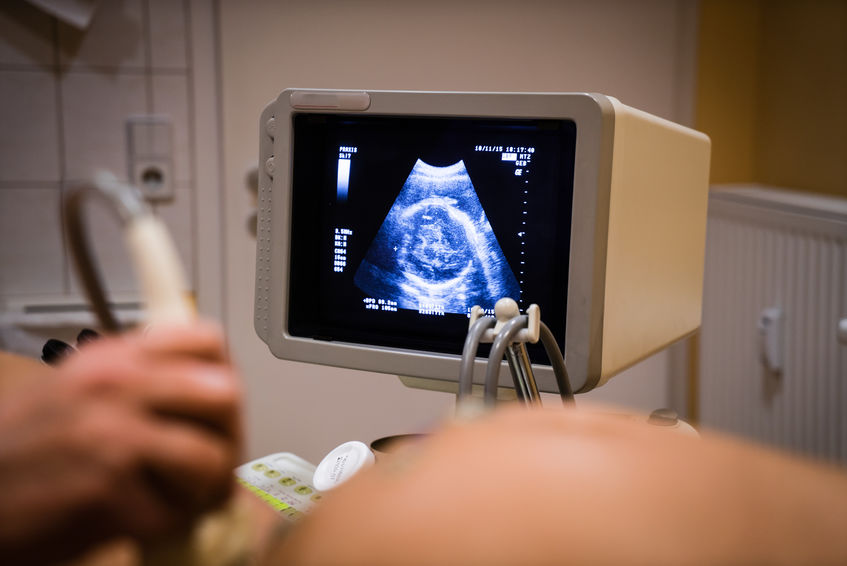Although it is widely believed that autoimmune diseases have a high impact on female fertility, among the more than 80 known autoimmune disorders, each has different characteristics when it comes to fertility. Although it is true that around 20% of cases of infertility of unknown origin are usually attributed to some type of immunological disorder1.
That is why in May, the month in which the World Lupus Day (10M), National Celiac Day (27M) and World Multiple Sclerosis Day (30M), The focus is on the impact of these pathologies. Thus, aspects such as their prevalence in our society, the socioeconomic burden they pose for families and the National Health System, or how they affect the quality of life of patients and their future plans in aspects such as the reproductive project, are placed at the center of public debate.
“We must keep in mind that the immune system is sometimes not able to differentiate between the body’s own cells and external agents,” explains Dr. Mariolla Parra, gynecologist at Ginefiv, centers specialized in assisted reproduction. “In most women, the immune system develops what is known as tolerance mechanism to not attack the embryo during the gestation period“, since it corresponds to an abnormal situation for the female body while it experiences the development of another organism with its own immune system inside,” adds the specialist.
“However, when there are certain underlying pathologies, such as some disorders of immunological origin, The woman’s body can identify the sperm or the embryo as foreign agents, giving rise to situations identified with immunological sterility.”, specifies the doctor.
Planning is key for pregnant women with systemic lupus erythematosus
Among the different types of lupus that exist, the one that is usually related to infertility in women is systemic lupus erythematosus (SLE)3. This systemic autoimmune disease is characterized by inflammation and tissue damage, and can affect any part of the body, although one of the most common areas is the reproductive system.3.
However, women who face this pathology are not necessarily sterile and, in fact, scientific advances have allowed many women with SLE to become pregnant and carry their pregnancies to term. While is true that “They must be highly planned pregnancies, often accompanied by assisted reproduction techniques. to accurately control aspects such as medication and the number of attempts, since there continue to be more complications associated with pregnancy such as decreased ovarian reserve or menstrual irregularity, including pregnancy loss itself,” Dr. Parra clarifies.
Therefore, “the key to a successful pregnancy “is that there has been no disease activity in the previous 6 months and to use a treatment that does not favor outbreaks”, since certain non-steroidal anti-inflammatory drugs to deal with SLE can cause complications in pregnancy and spontaneous abortions, as well as some corticosteroids and immunosuppressants4.
Early diagnosis allows you to avoid infertility due to celiac disease
People with celiac disease have inflammatory reactions in the mucosa of the small intestine to the presence of gluten and, consequently, it can lead to other conditions such as infertility. “This is because People with celiac disease who are not treated are unable to absorb certain nutrients such as iron, zinc or vitamin B12, that are important for embryo implantation2”, explains the expert. Furthermore, “the antibodies released by the body of the undiagnosed celiac woman in response to gluten damage the trophoblastic tissue of the placenta, which prevents the fetus from receiving all the nutrients it needs and producing recurrent pregnancy losses, with repeat abortions being common”2.
Some incipient symptoms of reproductive problems that celiac women can detect depending on the age at which the underlying pathology occurs are: menarche (first late menstruation), irregular menstrual cycles, amenorrhea (absence of menstruation), chronic pelvic pain, menopause early pregnancy, endometriosis, polycystic ovary syndrome and difficulty getting pregnant2.
On the other hand, immunological disorders such as multiple sclerosis (MS), which has usually been linked to endometriosis5, are not synonymous with infertility. In fact, a peculiarity of MS is that, During pregnancy, the woman’s immune system prevents her from rejecting the fetus7so that this immune state can protect you from the disease and stop outbreaks during pregnancy7. Although “it is necessary to take into account that the Sexual dysfunction is common in women and men with MS”, points out Dr. Parra. “This influences aspects such as decreased libido6 Therefore, added to the interference of some treatments against the pathology in the development of the baby7“It is recommended that women with MS who want to get pregnant consult a fertility specialist,” concludes the specialist.
References:
1.- B. Paraíso, C. González, G. Quea, M. Barranquero, S. Rogel, S. Azaña, and Z. Salvador (2023). Immune infertility: types, causes and treatments. Available in: https://www.reproduccionasistida.org/esterilidad-inmunologica/ Last access: May 2024.
2.- Díaz, I., Roig, J., Barranquero, M., & Salvador, Z. (2022). Can celiac disease cause infertility? – Diagnosis and treatment. Available in: https://www.reproduccionasistida.org/trastornos-de-fertilidad-asociados-a-la-enfermedad-celiaca/ Last access: May 2024.
3.- Villaquirán, AM, Barranquero, M., & Azaña, S. (2023). Available in: https://www.reproduccionasistida.org/lupus-eritematoso-sistemico-les/ Last access: May 2024.
4.- Mesa-Abad, P., Tovar-Muñoz, L., Serrano-Navarro, I., Ventura-Puertos, PE, & Berlango-Jiménez, J. (2020). Pregnancy in women with systemic lupus erythematosus: an integrative review. Nephrology Nursing, 23(1), 11–21. https://doi.org/10.37551/S2254-28842020002
5.- Laudański, P., Rogalska, G., Warzecha, D., Lipa, M., Mańka, G., Kiecka, M., Spaczyński, R., Piekarski, P., Banaszewska, B., Jakimiuk, A., Issat, T., Rokita, W., Młodawski, J., Szubert, M., Sieroszewski, P., Raba, G., Szczupak, K., Kluz, T., Kluza, M., Neuman, T.,… Wielgos, M. (2023). Autoantibody screening of plasma and peritoneal fluid of patients with endometriosis. Human reproduction (Oxford, England), 38(4), 629–643. https://doi.org/10.1093/humrep/dead011
6.- Kopp, TI, Pinborg, A., Glazer, CH, & Magyari, M. (2022). Women with female infertility seeking medically assisted reproduction are not at increased risk of developing multiple sclerosis. Human reproduction (Oxford, England), 37(6), 1324–1333. https://doi.org/10.1093/humrep/deac041
7.- Rodrigo, A., Barranquero, M., & Gómez, R. (2022). Available in: https://www.reproduccionasistida.org/esclerosis-multiple-embarazo/ Last access: May 2024.
Fountain: DARE

